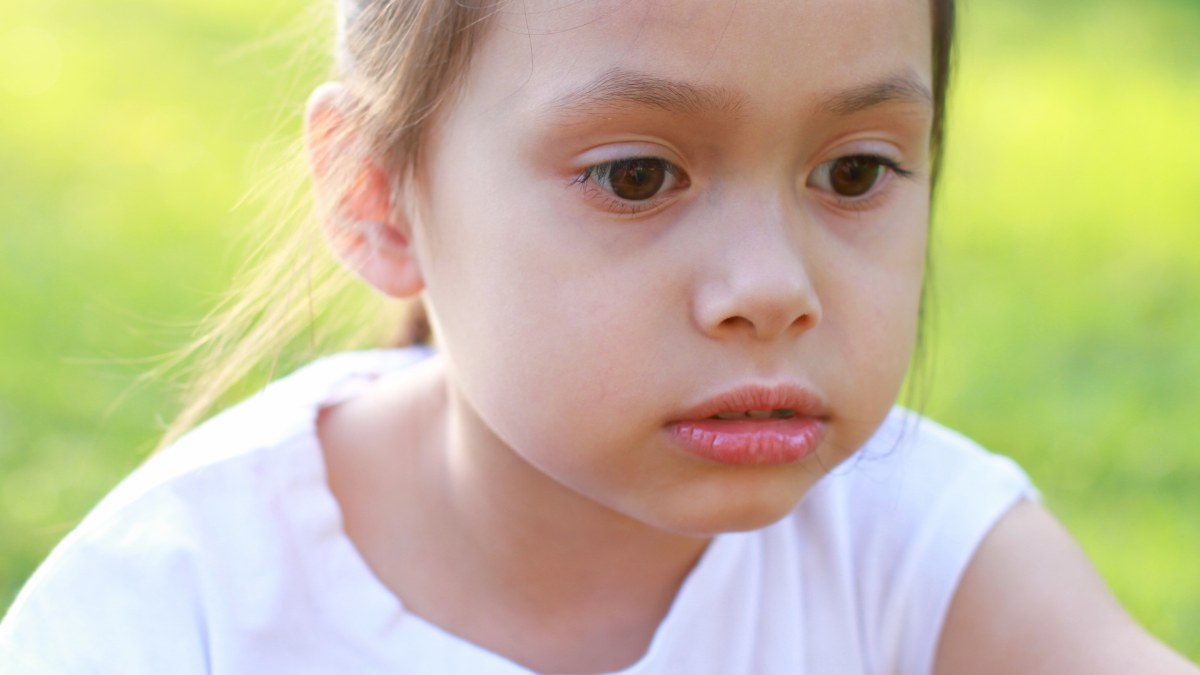Stimulus Generalization Psychology Definition
Unveiling the wonders of stimulus generalization in psychology. Explore its definition, examples, and impact on behavior.

Stimulus Generalization Psychology Definition
Understanding Stimulus Generalization in Psychology
Stimulus generalization is a fundamental concept in psychology that refers to the tendency of a learned response to occur in the presence of stimuli that are similar to the original conditioned stimulus (CS). It involves the transfer of a response from one stimulus to a similar stimulus, resulting in a broader range of stimuli eliciting the same response, known as "Stimulus Generalization Psychology Definition."

Definition of Stimulus Generalization
Stimulus generalization can be defined as the process by which an organism responds to stimuli that are similar to the original conditioned stimulus, even though those stimuli may not have been explicitly associated with the conditioned response during the learning process. In other words, the organism generalizes its response to include stimuli that share common features with the original stimulus.
For example, if a dog is conditioned to salivate at the sound of a bell, it may also salivate when presented with a similar-sounding tone. This is because the dog has generalized the salivation response to stimuli that are similar to the original conditioned stimulus (the bell).
Importance of Studying Stimulus Generalization
Studying stimulus generalization is crucial for understanding how organisms learn and adapt to their environment. It helps psychologists and researchers gain insights into various aspects of human and animal behavior. Here are a few reasons why studying stimulus generalization is important:
- Learning and Memory: By investigating how stimuli are generalized, researchers can gain a deeper understanding of how individuals form associations and remember information. This knowledge can be applied to a wide range of learning contexts, such as education, training, and therapy.
- Behavior Modification: Understanding stimulus generalization can aid in behavior modification techniques. By manipulating stimuli and their similarity, psychologists can shape behavior and help individuals generalize desired responses to a broader range of stimuli.
- Phobias and Anxiety Disorders: Stimulus generalization plays a role in the development and maintenance of phobias and anxiety disorders. By studying how stimuli become generalized in these disorders, researchers can design effective interventions for reducing fear and anxiety responses.
- Marketing and Advertising: Companies and advertisers utilize stimulus generalization principles to influence consumer behavior. By associating their products with positive stimuli, they aim to elicit similar responses to related stimuli, thus promoting brand recognition and sales.
Understanding stimulus generalization provides valuable insights into various psychological processes, including learning, memory, behavior modification, and the development of disorders. By studying this phenomenon, psychologists can develop effective interventions, strategies, and techniques to improve human behavior, cognition, and overall well-being.
Classical Conditioning
Stimulus generalization is a phenomenon that plays a significant role in classical conditioning, a fundamental concept in psychology. By understanding the connection between stimulus generalization and classical conditioning, we can gain insight into how individuals respond to stimuli in their environment.

Connection to Classical Conditioning
Classical conditioning is a process by which an organism learns to associate a neutral stimulus with a biologically significant stimulus, resulting in a conditioned response. Stimulus generalization occurs when an organism demonstrates a similar response to stimuli that are similar to the original conditioned stimulus (CS).
During classical conditioning, the initial step involves pairing an unconditioned stimulus (US), which elicits an automatic response, with a neutral stimulus (NS). Over time, the NS becomes the conditioned stimulus (CS), capable of eliciting a response known as the conditioned response (CR).
Examples of Stimulus Generalization in Classical Conditioning
To illustrate stimulus generalization in classical conditioning, consider the famous experiment conducted by Ivan Pavlov with dogs. In this study, Pavlov paired the sound of a bell (NS) with the presentation of food (US), which naturally caused the dogs to salivate (UR). Eventually, the sound of the bell alone (now the CS) elicited salivation (CR) from the dogs.
Stimulus generalization occurred when the dogs began to salivate not only in response to the original bell tone but also to similar sounds, such as a doorbell or a whistle. This demonstrated that the dogs had generalized their response to stimuli that were similar to the conditioned stimulus.
Another example of stimulus generalization in classical conditioning is the fear response in phobias. Imagine a person who develops a fear of dogs after being bitten by a specific breed. Over time, this fear may generalize to other breeds or even to animals that resemble dogs, such as wolves or coyotes. The fear response has generalized to stimuli that share similarities with the original conditioned stimulus, resulting in a broader fear response.
By understanding how stimulus generalization operates in classical conditioning, researchers can gain insights into how learned responses extend to similar stimuli. This knowledge has practical implications in various fields, including therapeutic interventions and behavior modification techniques.
Operant Conditioning

Connection to Operant Conditioning
Stimulus generalization is not only applicable to classical conditioning but also plays a significant role in operant conditioning. Operant conditioning is a type of learning in which behaviors are strengthened or weakened based on the consequences that follow them. The principles of stimulus generalization in operant conditioning are similar to those in classical conditioning, but the context and mechanisms differ.
In operant conditioning, an individual learns to associate their behaviors with specific outcomes. When a behavior is reinforced or rewarded, it is more likely to be repeated in the future. Stimulus generalization in operant conditioning occurs when the individual responds to similar stimuli in the same way they responded to the original stimulus that was reinforced.
Examples of Stimulus Generalization in Operant Conditioning
To better understand stimulus generalization in operant conditioning, let's consider a few examples:
- Pigeon Pecking: In a laboratory setting, pigeons are trained to peck at a disk for food reinforcement. The disk used during the training is of a specific shape, color, and size. Once the pigeons have learned to peck at the disk to receive food, they may also peck at similar disks that share some of the same characteristics. This demonstrates stimulus generalization in operant conditioning, as the pigeons generalize their response to stimuli that resemble the original reinforced stimulus.
- Dog Training: When training a dog to perform a specific behavior, such as "sit," the trainer may initially reinforce the behavior by providing a treat when the dog correctly sits on command. As the training progresses, the dog learns to generalize the command and sits in response to similar cues, such as a hand gesture or a different voice tone. This is an example of stimulus generalization in operant conditioning, as the dog responds to similar stimuli based on the reinforcement received for the original behavior.
- Child Behavior: In a classroom setting, a teacher may reinforce positive behavior, such as raising hands before speaking. If a student is consistently reinforced for raising their hand, they are likely to generalize this behavior to other situations, such as raising their hand in other classes or even outside of the classroom. This exemplifies stimulus generalization in operant conditioning, as the student's behavior is generalized to similar contexts based on prior reinforcement.
These examples illustrate how stimulus generalization in operant conditioning can occur across various species and contexts. It highlights the general nature of learning and the impact that reinforcement has on the expansion of behaviors to similar stimuli.
Applications in Everyday Life
Stimulus generalization, a fundamental concept in psychology, has significant applications in understanding human behavior and its impact on learning and behavior modification.
Relevance to Human Behavior
Stimulus generalization plays a crucial role in understanding how individuals respond to different situations and stimuli in their daily lives. When a person generalizes a previously learned response to a similar but slightly different situation or stimulus, it helps them navigate new experiences efficiently.
For example, if someone has a fear of dogs due to a negative experience with a specific breed, they may generalize that fear to other breeds as well. This generalization allows them to be cautious around all dogs, even if they haven't encountered every breed before.
Impact on Learning and Behavior Modification
Stimulus generalization also has implications for learning and behavior modification. By understanding how individuals generalize their responses, psychologists and educators can design effective strategies to promote learning and modify behavior.
In learning environments, educators can utilize stimulus generalization to enhance knowledge transfer. By presenting new information in a way that is similar to what has been previously learned, individuals are more likely to generalize their existing knowledge to the new material. This promotes faster and more efficient learning.
When it comes to behavior modification, stimulus generalization can be used to reinforce positive behaviors. For example, if a child is rewarded for good behavior in one setting, such as school, they may generalize that behavior to other settings, such as home or extracurricular activities. This generalization helps in shaping desired behaviors across different contexts.
Understanding stimulus generalization aids in developing effective interventions for individuals with phobias or anxiety disorders. By gradually exposing individuals to stimuli that are similar to the feared stimulus, psychologists can help them generalize a sense of safety and reduce their fear response.
By recognizing the relevance of stimulus generalization in human behavior and its impact on learning and behavior modification, psychologists and educators can apply this knowledge to promote positive outcomes and help individuals navigate the complexities of their everyday lives.
Factors Influencing Stimulus Generalization
Stimulus generalization in psychology is influenced by several factors that play a significant role in how individuals respond to stimuli. Two key factors that contribute to stimulus generalization are the similarity of stimuli and contextual cues.
Similarity of Stimuli
The degree of similarity between stimuli is a crucial factor in stimulus generalization. When two stimuli share similar characteristics, individuals are more likely to respond to them in a similar manner. The greater the similarity, the stronger the generalization effect.
To illustrate this, let's consider an example. Imagine a dog that has been conditioned to salivate at the sound of a bell. If a similar sound, such as a doorbell or a phone ring, is presented, the dog may also salivate in response to these similar stimuli. This is because the dog generalizes the conditioned response to stimuli that resemble the original conditioned stimulus.
Researchers have conducted studies to explore the relationship between the similarity of stimuli and stimulus generalization. These studies often involve presenting participants with various stimuli and measuring their responses. The results help to deepen our understanding of how individuals generalize their responses based on stimulus similarity.
Contextual Cues
Contextual cues are another important factor that influences stimulus generalization. The context in which a stimulus is presented can impact how individuals respond to similar stimuli. Contextual cues provide additional information that helps individuals discriminate between stimuli and determine if a response is appropriate.
For instance, consider a person who is afraid of dogs due to a past negative experience. If they encounter a small, friendly dog in a safe environment, they may not experience fear. However, if they encounter a large, aggressive-looking dog in an unfamiliar or threatening context, they may generalize their fear response to all dogs, regardless of their size or temperament.
Contextual cues can include environmental factors, social cues, and personal experiences. These cues provide individuals with information that helps them differentiate between stimuli and modify their responses accordingly.
Understanding the influence of similarity of stimuli and contextual cues on stimulus generalization is essential in various fields of psychology. This knowledge can inform therapeutic interventions, behavior modification techniques, and the design of effective training programs.
By studying these factors and their impact on stimulus generalization, psychologists can gain valuable insights into how individuals perceive and respond to the world around them. This knowledge contributes to our understanding of learning and behavior, ultimately enhancing our ability to support individuals in various aspects of their lives.
Research and Implications
Studies on Stimulus Generalization
Stimulus generalization has been extensively studied in the field of psychology to better understand its underlying mechanisms and implications. Researchers have conducted various experiments and studies to explore the factors that influence stimulus generalization and its effects on behavior.
One notable study conducted by Watson and Rayner in 1920, known as the Little Albert experiment, demonstrated how stimulus generalization can occur through classical conditioning. In this experiment, a young child named Albert was conditioned to fear a white rat through pairing it with a loud noise. The fear response generalized to other similar stimuli, such as a white rabbit and a fur coat. This study provided valuable insights into the process of stimulus generalization and its role in the development of phobias.
Another study by Skinner in the field of operant conditioning investigated the generalization of behaviors. Skinner trained rats to press a lever to receive a food reward. He found that rats were more likely to generalize their response to similar levers with slight variations in shape or color. This research highlighted the role of stimulus generalization in shaping behavior and learning.
Practical Implications for Psychology
The study of stimulus generalization in psychology has practical implications in various domains. Understanding how stimuli are generalized can help in the development of effective behavior modification techniques, such as exposure therapy for phobias and desensitization procedures.
In clinical psychology, stimulus generalization plays a crucial role in treating anxiety disorders. By exposing individuals to stimuli that resemble their feared object or situation, therapists can help them generalize their learned coping skills and reduce anxiety responses in a broader range of real-life scenarios.
Moreover, stimulus generalization has implications in advertising and marketing. Advertisers often aim to create positive associations with their products by using stimuli that resemble well-established positive stimuli. For example, a soft drink advertisement may feature joyful and energetic individuals to evoke positive emotions and associate those feelings with the product. By leveraging the principles of stimulus generalization, marketers can influence consumer behavior and preferences.
Understanding the research and implications of stimulus generalization in psychology provides valuable insights into how humans and animals learn and respond to stimuli. By applying this knowledge, psychologists can develop effective therapeutic interventions, while marketers can create persuasive advertising campaigns. The study of stimulus generalization continues to contribute to our understanding of human behavior and its practical applications in various fields.
Sources
https://www.adinaaba.com/stimulus-generalization-psychology-definition
https://www.verywellmind.com/what-is-stimulus-generalization
https://www.parentingforbrain.com/stimulus-generalization
https://fastercapital.com/the-role-of-stimulus-generalization.html








.jpg)
.jpg)


%20(1).jpg)
.jpg)
